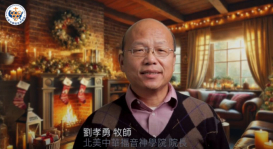A COPYRIGHT battle over gospel music is looming as churches square up against gospel artists who take church hymns without permission and rearrange them without crediting the composers or paying royalties to the churches.
The holy war erupted when a leading member of the Seventh Day Adventist Church (SDA), Wellington Ntshangase, accused Mthunzi Namba of Joyous Celebration fame of failing to credit the church for four hymns he used on his latest album, Send Your Glory.
Some of the artists remain defiant in their stance not to credit the original composers of recorded hymns, nor do they recognise church ownership of the music.
The music "belongs to God," said one. Ntshangase lashed out at the gospel star for "presenting songs taken from hymn books of the church as his original work".
An industry insider told City Press that this case might deter infringement of copyright in the R25 million a year gospel industry.
He further estimated that the denial of acknowledgement to churches and hymn composers could mean that they are deprived of some R1,8 million a year .
"The gospel music industry in South Africa arguably sells about one million units (CDs and cassettes combined) a year . If one took an average wholesale price of R25 a unit, the gross sales revenue would be R25 million a year ," said the source. "One income sector of musical work - mechanical copyright income from the making of the record - would amount to R1,69 million a year based on the one million units sold.
"If one factors in the performance, synchronisation and other copyright income sectors, one could apply a factor of 2,5 percent, to come up with a total copyright income generation of roughly R4,2 million."
Lesley Sedibe of the Recording Industry of South Africa confirmed that gospel music has the biggest share of the local market, followed by kwaito.
As the recording industry braces itself for Easter sales, affected churches have appealed against the continued abuse of church hymns and non-payment of royalties. Among the churches which have voiced concern are the Zion Christian Church (ZCC), Rhema, the International Pentecostal Church, and the Methodist, Lutheran, Catholic and NG churches.
Famed gospel musicians, including Rebecca Malope, Vuyo Mokoena, Jabu Hlongwane, Solly Moholo, Sharon Dee, Deborah Frazer, Lundi Tyamara and Nokwazi are all believed to have experimented musically with hymns. But it could not be established if they are among those believed to have infringed composers' copyright.
Namba has been singled out by the SDA Church as the prodigal son for using at least four hymns on his latest recording. These include Bongani Inkosi (written by WH Doane), Ezulwini ( written by JH Tenney), Jesu Lidwala (written by WB Bradbury) and Nkosi Ngisimamise (written by Chas HM Gabriel). None of these composers is acknowledged on the album.
Alan Johnston, deputy chief executive of the SA Music Rights Organisation (Samro), has initiated an investigation into the allegations.
"The watchdog body, responsible for the investigation and resolution of such cases where authorship and ownership of copyright is in dispute or infringed, is currently investigating the allegations," said Johnston.
A furious Ntshangase told City Press: "It is sad that greedy musicians and record companies present the work of others as their original work. The least they could have done was to credit themselves as the arrangers of the songs, not as the composers."
A shocked Namba, himself a member of the SDA Church, said he never stole lyrics from the church but only rearranged songs by adding a melody.
"Traditional gospel songs sung at church do not belong to anyone since they are in the public domain and are accessible to anyone who is keen on embracing the songs," said Namba.
However, our source explained that "whether or not the hymns (songs/musical works/titles) are in the public domain or not, any new arrangement needs to be properly identified and notified. In the case of titles not in the public domain, permission must be obtained before appropriating a hymn.
"If an artist is unable to establish who the composer is, he should subject the hymn to copyright control until the author can be established."
Gospel singer Solly Moholo of the ZCC said if an artist chooses to sing a hymn that everyone knows, there is no need for acknowledgement since all hymns belong to God.
The queen of gospel, Rebecca Malope, said if the lyrics of a song are taken from the SDA Church, then credit to the original songwriter ought to be given.
"However, if the song is a traditional gospel song that is immensely popular, like Uthanda luka Baba for instance, there is no need to credit anyone since the song does not belong to anyone," she said.
"The main reason for acknowledgement is to respect the songwriter since the Seventh Day Adventist Church is the sole owner of the hymns," said Malope.
A spokesperson for the Rhema Bible Church, Ron Steele, said artists should avoid lawsuits by paying royalties.
"Gospel singers sh
By Mbali Milambo




![[Exclusive Interview] A revelation within the brink of life and death — Meg Leung’s mission in Christian art](https://www.gospelherald.com/media/cache/thumbnail/7/21/72163sp_273w_150h_1x_1y.jpg)


